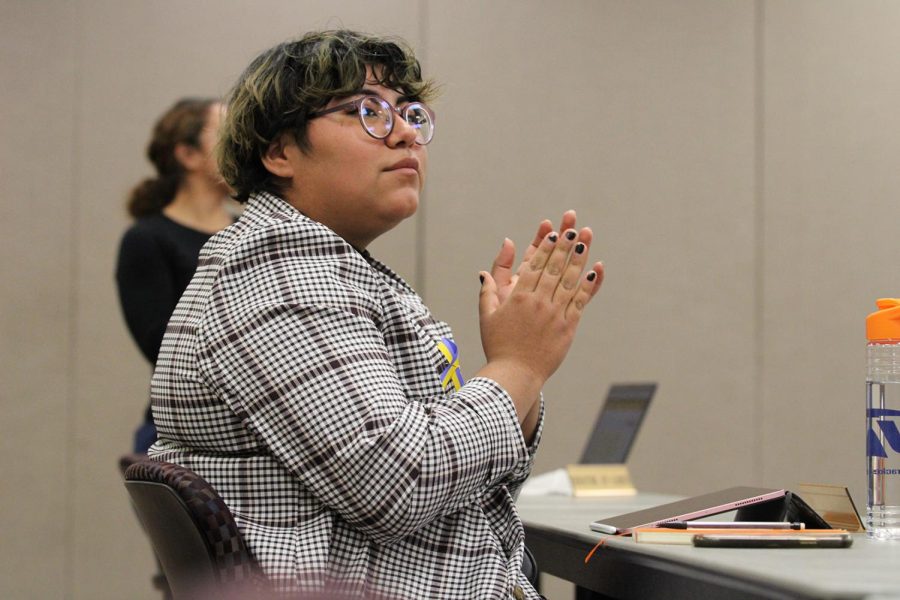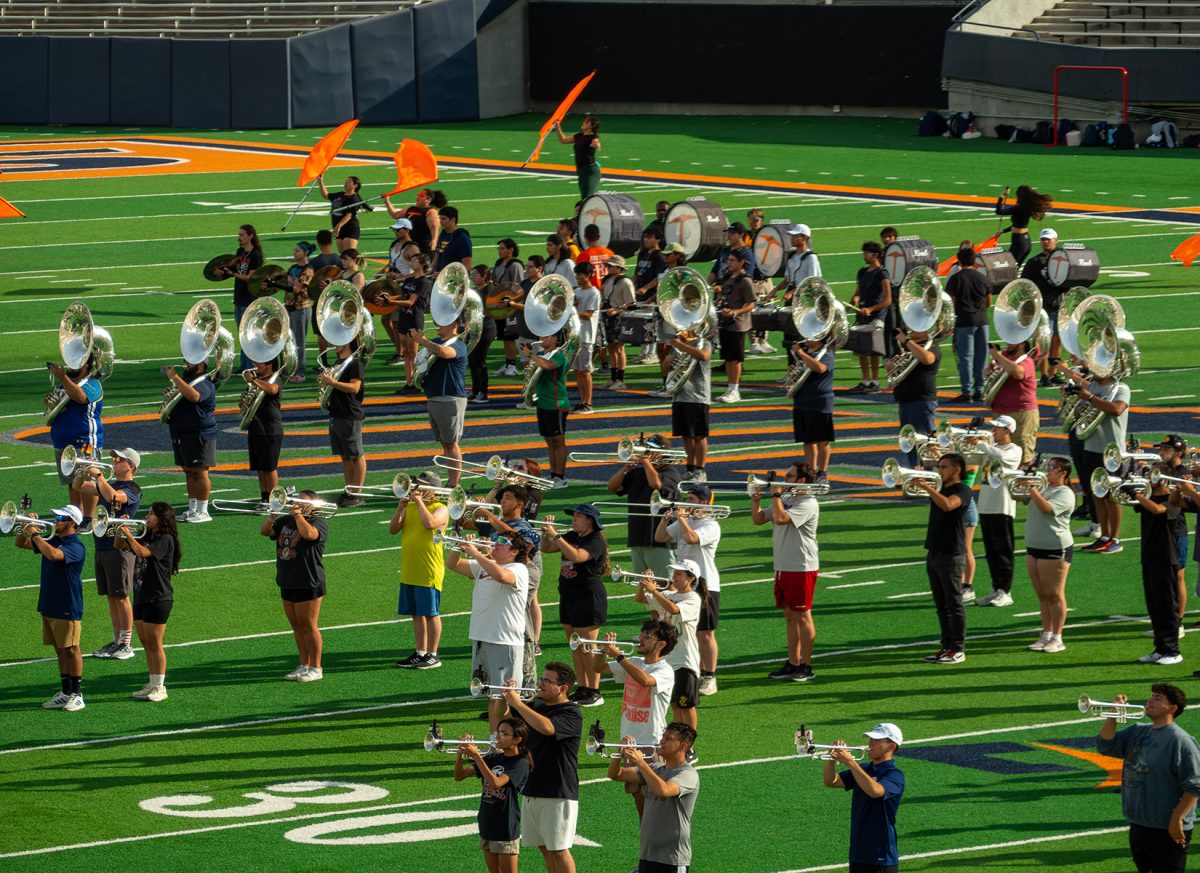Over the years, the Student Government Association (SGA) mission has been to represent all UTEP students by providing an official voice.
By working together with the administration for the advancement of the University community, SGA has also ensured student participation in decision-making processes and helped defend the rights of each student.
The UTEP SGA is organized into three separate but equal branches: the Executive, Legislative, and Judicial.
The Executive Branch oversees the Legislative Branch and administers the daily operations of the organization. In this branch, there are three officials: a president, a vice president for internal affairs, a vice president for external affairs, and an appointee to serve as executive assistant.
Some of the powers of the president include acting as the chief executive officer of the SGA, nominating or appointing student(s) to serve on Faculty Senate committees or boards, and serving as the UTEP SGA representative at the University of Texas System Student Advisory Council (UT SAAC).
The vice-president for internal affairs also holds several powers, including presiding over Senate sessions, assuming the presidency in cases where the president’s office is vacant, and calling special Senate sessions with 48 hours’ notice.
The vice-president for external affairs acts as a liaison between the SGA and local, state, and national governments, as a coordinator to outside organizations seeking the support of SGA, and approves any publicity such as advertisements, flyers, banners, etc. for any project of SGA.
The executive assistant serves as the chief of staff and performs the duties as directed by the President.
The legislative branch is composed of a senate that consists of 25 senators and a Senate majority leader: 17 senators-at-large representing 1,000 students each and eight collegiate senators representing the eight colleges of UTEP.
The Senate passes bills and allocates funds to students and student organizations for university-related projects, events, or travels. Senators also launch initiatives called “Special Projects” to resolve problems that students have experienced on campus. Legislative tasks are divided among many committees, which represent the concerns of the student body.
Aside from special projects, senators are also to be active in the ad-hoc and standing committees established by the Student Government Association, including appropriations funding, student application review committee (SARC), document review committee (DRC) EXCEL, outreach, and sustainability.
The judicial branch is the portion of the Student Government Association that decides cases arising from the student community. Under the supervision of the attorney general, this branch is divided into two subparts: the supreme court justices and the traffic court justices.
Justices of the SGA Supreme Court moderate the balance between the executive and legislative branches while also attending hearings concerning elections during campaign weeks.
The traffic court provides students with the opportunity to appeal their parking ticket citations in an organized and moderated environment. The traffic court is composed of public defenders, prosecutors, a judicial assistant, and five justices that issue verdicts on student appeals.
Students also can join the EXCEL program to learn about the operations of SGA. EXCEL is a one-semester program that provides leadership and social skills to advance in their academic careers.
SGA general election will be held on April 11-14 where the President, Vice President of Internal and External, 16 Senator at Large, and 8 Collegiate Senator positions will be up for election.
For more information about the UTEP Student Government Association, email [email protected], call 915-747-5584, or visit utep.edu/sga.
Eduardo A. Flores is a contributor and may be reached at [email protected]; @eduardo_aa_flores on Instagram; @floreseduardoa on Twitter.












